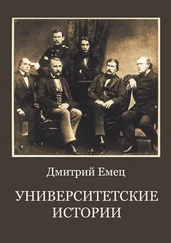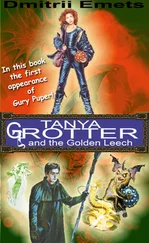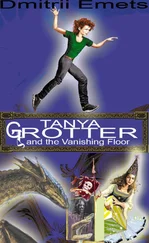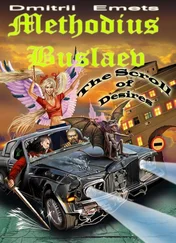“I did not,” Methodius said.
“Don’t you think that I’m a fool. I’m only a fool in profile! How many buttons were done up on my wallet this morning? Two! But I always button only one! And I never zipper to the end in the partition for small change!”
“Look after your buttons yourself! Mom, your relative is killing me! I’ll be one-eared and… ah… deformed!” Methodius reported, after puckering from the pain. The uncle was digging his nails very painfully into his ear. Possibly, they gave the white slip to him lawfully, though also took 300 bucks for it. “Here I’m an ass! The second button! Had to be nabbed for such nonsense,” Methodius thought.
The nails clamped down like pincers on his ear. “Have you understood everything, shorty? What about the take?” Eddy hissed.
“Ah! Leave me alone, twerp! Buy yourself an inflatable doll!” Methodius snapped.
“What did you squeal? Well, repeat it! Repeat, say it!” Khavron raged.
“Boys, boys!” Zozo interceded conciliatorily. “Perhaps we’ll stop fighting for no reason? So, shake hands and make up?”
Khavron unwillingly let go of his nephew’s ear. “Shake! Only let him remember: I catch him again – I’ll break him!” he repeated.
“Like hell you’ll catch me again!” Methodius said in an undertone. Lucky for him, Eddy was no longer listening. After jumping into a pair of his beloved boots, with a brush he whisked away from them a speck invisible to the world, and rushed into the big city on the hunt for tips and success.
***
Methodius and his mother remained in the apartment. Zozo Buslaeva put down the magazine and pensively looked at her son. A normal twelve-year-old adolescent – in any case, he appeared normal: skinny with narrow shoulders. He was also not noted for his height. He was ninth in line at gymnastics among fifteen boys of his class, but at the same time somewhat adroit. He played soccer well, ran not badly. When it was necessary to climb up a rope – here he was generally the first. Unfortunately, being ninth in line, more frequently he had to reach up to the rope.
And outwardly… outwardly, perhaps, not without charm. The edge of a front tooth chipped off to a third, long light-brown hair gathered at the back into a ponytail. The uniqueness of the hair was that they had not given Methodius a haircut since the moment of birth. At first Zozo did not do this because the child kicked, fought, and shouted like he was wounded, and then the grown Methodius began to assert that it was painful for him when scissors touched his hair. Zozo did not know whether this was true or not, but once, about five years back, when she attempted to clip off a piece of modelling clay stuck to her son’s hair, she saw blood on the scissors, not knowing where it came from.
Zozo Buslaeva was frighteningly afraid of the sight of blood. This was left in her from childhood, when, after cutting her hand with a kitchen knife, she decided that she was bleeding to death. Her parents were not at home. Little Zoe, losing her head, hid in the closet and, whimpering from the horror, hundreds of agonies coming alive in her imagination, sat there for one-and-a-half hours until Mother returned and threw open the sobbing door. The cut turned out to be minor; however, the horror did not go away and, having once settled in, had arranged for permanent residence. Now then, attempting to cut Methodius’ strand with the modelling clay, Zozo heard that terrible resonant and persistent sound when something drips onto the linoleum. Closing her eyes tight, she stood in the middle of the kitchen and felt how the blood was pouring onto her woollen socks. When, after getting a grip on herself, Zozo nevertheless opened her eyes – the scissors were completely dry, if we do not consider the small brown speck.
Besides the hair, there was something else in Methodius, which in no way fit into the scheme called “twelve-year-old adolescent.” And these were the eyes: slanting, not quite symmetrical, and of completely indeterminate colour. Some considered that they were grey, some green, some black, and a couple of people were ready to swear under oath that they were blue. In actuality, their colour changed depending on the illumination and the mood of Methodius himself.
Now and then, especially when her son began to be angry or was agitated by something, Zozo – if she happened to be beside him – felt a strange vertigo and weakness. It seemed to her that she was in an elevator descending infinitely into a tight dark mine. She almost saw in reality this elevator with the dim light, the flat iron buttons, and the boldfaced inscription of a marker: “Welcome to Gloom!” She saw and in no way could shake off the hallucination.
She experienced the worst shock when Methodius was still a child. Then a dog violently frightened him. This was a foolish sheepdog that adored rushing silently, even without a growl, at people and, without biting, knocking them down with its paws. Then for some time the sheepdog would stand over the victim, sowing horror and delighting in the produced effect, and would run away afterwards. However, three-year-old Methodius did not know this. In his belief, the dog was attacking in earnest. A bewildered Zozo did not even hear how Methodius yelled. She only understood that her son shouted and fixed his eyes on the dog. The sheepdog ran up to Methodius, knocked him down, and then suddenly, by itself with a kind of absurd comicality, fell down sideways and remained lying so, with a thread of saliva gleaming on its canine teeth. Later in court, they said the sheepdog had unexpectedly had a heart attack.
For long afterwards, Zozo could not come to her senses. She was unable to forget the dark flame flaring up for a moment in her son’s eyes. This was something impossible to describe, commonplace words like “glow,” “tongues of flame,” “fiery jets,” and so on, would not even come close. Something simply appeared in his pupils, something, which, even she, his mother, could not recall without a shudder.
But in the end Zozo discarded everything from her head. Fortunately for her, she was particularly frivolous. She constantly attempted to arrange her personal life, and this took away all her time and energy. Methodius only knew that at first there was papa Igor. Then life rolled papa Igor up in a rug and dragged him off somewhere. Now he appeared once every two or three years, grew bald, threadbare and worn-out by destiny, brought a nosegay of three carnations for the ex-wife and Chinese pistols for the son, and bragged that everything was fine with him. He had a new wife and a firm engaged in repairing washing machines. However, Eddy Khavron, knowing everything, asserted that papa Igor’s business was only so-so and it was not his firm but he himself that repaired washing machines. Sometimes Eddy Khavron branded Mr. Buslaev Sr. with the insulting term “an inferior one-man operation.”
After papa Igor in the life of Zozo and Methodius there were Uncle Lyosha, Uncle Tolya, and Uncle Innokentii Markovich. Uncle Innokentii Markovich hung around for a long time, almost two years, and earned Methodius’ objection. He forced Methodius to hang up pants, wash his own socks, and call him by name and patronymic. Then Uncle Markovich vanished into thin air somewhere, and Methodius no longer memorized the names of the remaining uncles in order not to overload his young memory heavily. “Choke up the cells of your brain with any nonsense, and then there won’t be enough space for lessons!” he reasoned.
Zozo Buslaeva scratched her forehead. She vaguely felt that what happened should not be abandoned so simply. That Methodius got into Eddy’s wallet was extremely serious. She, as a mother and a woman, must now stir up something pedagogical in the spirit of what the wise Makarenko devised. To punish perhaps, or in any case, to be strict. Here the only problem was that Zozo completely could not conceive how to be strict. She herself was even a slob in life. “Ahem… Son, I want to have a talk with you! You’ll not take more of Eddy’s money?” she asked.
Читать дальше
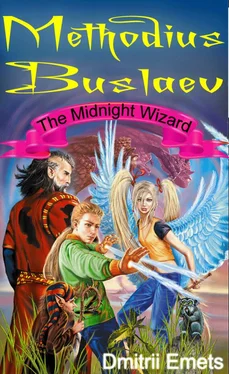
![Дмитрий Емец - Вселенский неудачник [litres]](/books/28848/dmitrij-emec-vselenskij-neudachnik-litres-thumb.webp)

![Дмитрий Емец - Таня Гроттер и Исчезающий Этаж [litres]](/books/395924/dmitrij-emec-tanya-grotter-i-ischezayuchij-etazh-litre-thumb.webp)
